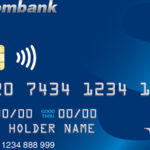Consular legalization is a critical process that authenticates the seals, signatures, and titles on documents issued in Vietnam, enabling their recognition and use abroad. This article will guide you through the requirements, procedures, and steps to legalize your documents for overseas use.
1. Understanding Consular Legalization Regulations
The Government’s Decree No. 111/2011/ND-CP, dated December 5, 2011, provides a comprehensive regulatory framework for consular legalization and certification. This decree outlines the authority, order, and procedures for these processes, as well as the content of state management and the responsibilities of agencies, organizations, and individuals involved.
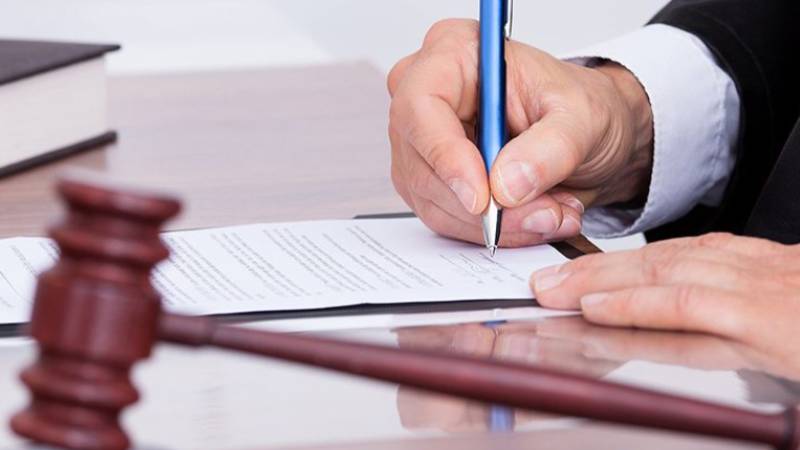 Consular Legalization Regulations
Consular Legalization Regulations
2. Demystifying Consular Legalization and Certification
Consular legalization is an administrative procedure where the competent authority of Vietnam certifies signatures, seals, and titles on documents issued by foreign countries. This certification ensures their recognition and legal use within Vietnam.
On the other hand, consular certification is the process of authenticating seals, signatures, and titles on documents issued in Vietnam, making them valid for use abroad. Both processes are essential for ensuring the authenticity and legality of documents across borders.
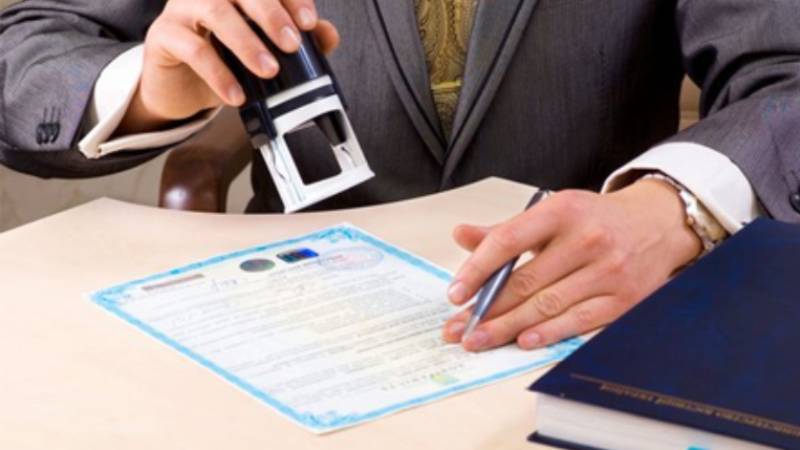 Consular Legalization and Certification: Ensuring Document Authenticity
Consular Legalization and Certification: Ensuring Document Authenticity
While both processes involve authenticating signatures, seals, and titles, it’s important to note their key difference: consular legalization is for foreign-issued documents to be used in Vietnam, while consular certification is for Vietnam-issued documents intended for overseas use.
3. Navigating Consular Legalization/Certification Requirements
Consular Certification Requirements
– Declaration of Consular Certification/Legalization: Use form LS/HPH-2012/TK or submit an online declaration directly to the Consular Department or the Department of Foreign Affairs. Print and attach it to your application.
– Identity Documents: Provide your original identity documents (ID card, passport, or equivalent) for direct submissions or a copy for mail submissions. Notarization is not necessary for these documents.
– Documents for Certification: Include the documents and papers requiring consular certification.
– Copies: Provide one copy of the documents requiring certification.
– Envelope: Include a pre-addressed envelope with the recipient’s address if submitting by mail and requesting the result by mail.
If the official receiving your application needs to verify the authenticity of the documents, they may request additional original relevant documents, and you’ll need to submit a copy of these.
Consular Legalization of Documents and Papers
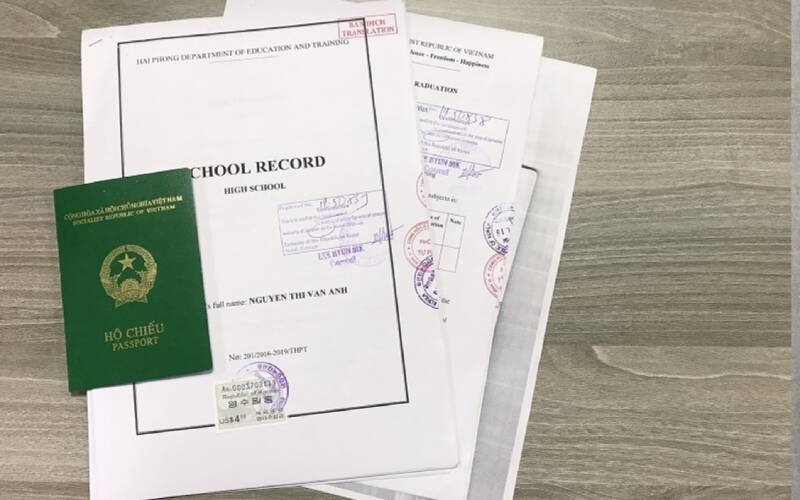 Consular Legalization: A Crucial Step for Overseas Document Use
Consular Legalization: A Crucial Step for Overseas Document Use
– Declaration: As with certification, use form LS/HPH-2012/TK for your declaration.
– Identity Documents: Provide your original or copy of identity documents, depending on your submission method. Notarization is not required.
– Documents for Legalization: Include the documents and papers requiring consular legalization, already certified by the diplomatic, consular, or other authorized representative agencies of foreign countries.
– Copies: Provide one copy of the documents requiring legalization.
– Translation: If the documents are not in Vietnamese or English, translate them into either language. While notarization of the translation is not necessary, you are responsible for its accuracy. Provide one copy of the translated documents.
– Envelope: Include a pre-addressed envelope for mail submissions and results.
As with certification, the official may request additional original documents for verification, and you’ll need to submit copies of these.
Requirements for documents requiring consular legalization include:
– Issuance by foreign countries for use in Vietnam.
– Issued or certified by competent foreign authorities (diplomatic, consular, or authorized agencies)
– Prior introduction of the seal, signature, and title of the competent authority on the document to the Ministry of Foreign Affairs.
– Documents must be intact, without tears, erasures, falsifications, or improper use.
4. Timelines for Consular Legalization
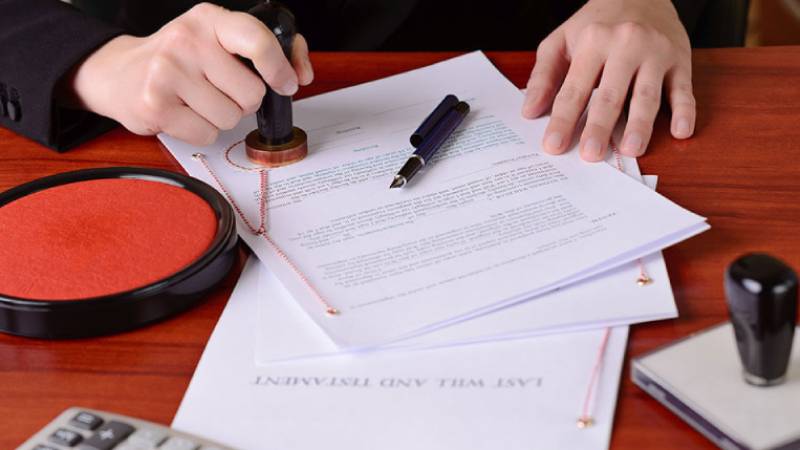 Efficient Consular Legalization Approval Process
Efficient Consular Legalization Approval Process
The Ministry of Foreign Affairs is committed to efficiency. They will process your application within 1 working day from the date of receipt, provided it is valid. However, if your application includes 10 or more documents or papers, the processing time may extend to a maximum of 5 working days.
5. Step-by-Step Consular Legalization Procedure
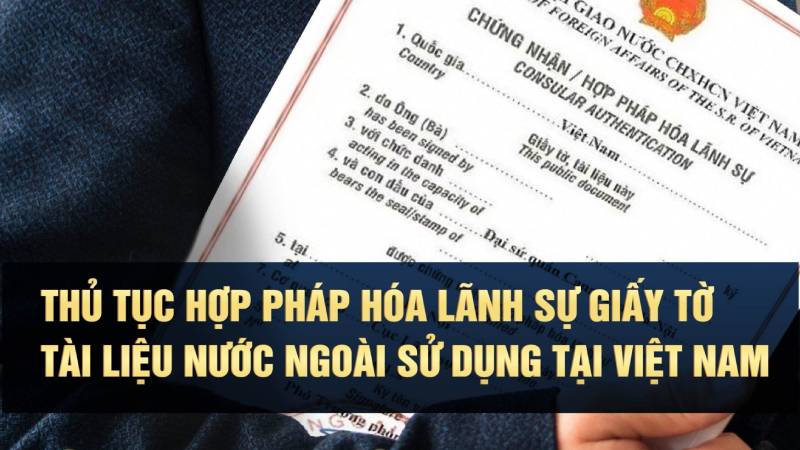 Consular Legalization: A Streamlined Process
Consular Legalization: A Streamlined Process
The consular legalization process typically involves the following 3 steps:
Step 1: Prepare Your Application
Gather and prepare all the required documents and papers mentioned above.
Step 2: Submit Your Application and Pay the Fee
Submit your application and pay the fee at one of these addresses:
– Consular Department in Hanoi: 40 Tran Phu, Ba Dinh, Hanoi
– Department of Foreign Affairs in Ho Chi Minh City: 6 Alexandre de Rhodes, Ben Nghe, District 1, Ho Chi Minh City
– Headquarters of local Foreign Affairs Departments authorized by the Ministry of Foreign Affairs to receive applications
If you cannot submit your application in person, you can send it by mail to the Consular Department or the Department of Foreign Affairs in Ho Chi Minh City, along with the fee.
As of January 1, 2017, the fees for consular certification and legalization are as follows:
– VND 30,000 per certification.
– VND 30,000 per legalization.
– VND 5,000 per copy of the document or paper.
Step 3: Ministry of Foreign Affairs Review and Processing
Step 4: Receive Your Results
You can receive your results in person at the competent authority’s office, as per the appointment on your receipt, or by mail.
6. Important Notes on Consular Legalization
Documents Exempted from Consular Legalization/Certification
Article 9 of Decree 111/2011/ND-CP and agreements between Vietnam and certain countries stipulate that specific documents are exempted from legalization/certification. This means they can be used in a country other than the issuing country without these procedures.
Documents exempted from legalization/certification include:
– Documents covered by international treaties between Vietnam and the relevant foreign country, or based on the principle of reciprocity.
– Documents directly transferred or exchanged through diplomatic channels between Vietnam and foreign countries’ competent authorities.
– Documents exempted under Vietnamese law.
– Documents for which the receiving agency, either in Vietnam or the foreign country, does not require legalization or certification, according to their respective laws.
Documents Ineligible for Consular Legalization/Certification
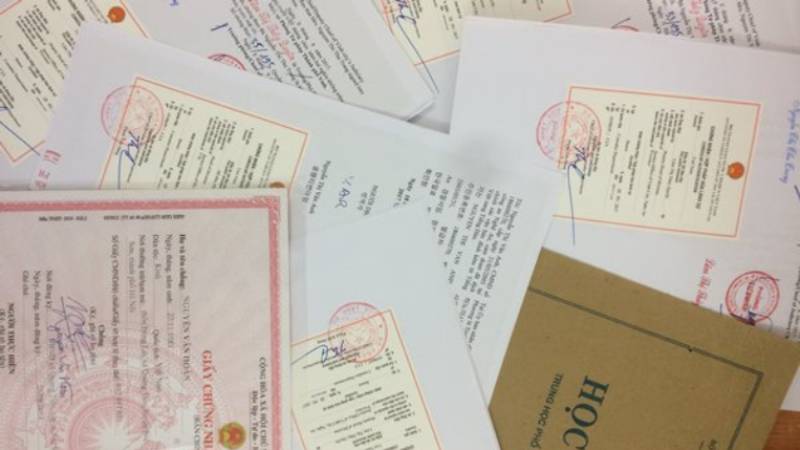 Understanding Ineligibility for Consular Legalization/Certification
Understanding Ineligibility for Consular Legalization/Certification
According to Article 10 of Decree 111/2011/ND-CP and Article 4 of Circular No. 01/2012/TT-BNG, dated May 31, 2012, certain types of documents are not eligible for consular legalization or certification. These include:
– Altered, erased, or falsified documents that have not been rectified according to legal regulations.
– Documents with inconsistencies within themselves or with other documents in the application.
– Forged documents or those issued or certified beyond the authority prescribed by law.
– Documents with seals and signatures that are not original, i.e., not directly affixed and signed on the document. Reproduced seals and signatures are not considered valid.
– Documents with content that violates the rights and interests of the State of Vietnam or contradicts policies and guidelines.
Additional Notes
– Multi-page documents: Documents with two or more pages must have a cross-page seal to ensure authenticity and prevent tampering.
– Documents issued by foreign countries: These must be consularly certified by the diplomatic, consular, or authorized representative agencies of that country in Vietnam before submitting them for consular legalization.
– Foreign-issued documents: These must be consularly certified by Vietnam’s diplomatic, consular, or other authorized representative agencies abroad. For host country documents, certification by the Ministry of Foreign Affairs or another competent authority is required. For third-country documents, certification by that country’s diplomatic, consular, or authorized representative agencies in the host country is necessary.
We hope this article has equipped you with valuable insights. Best of luck with your procedures, and feel free to explore our other informative guides!



























